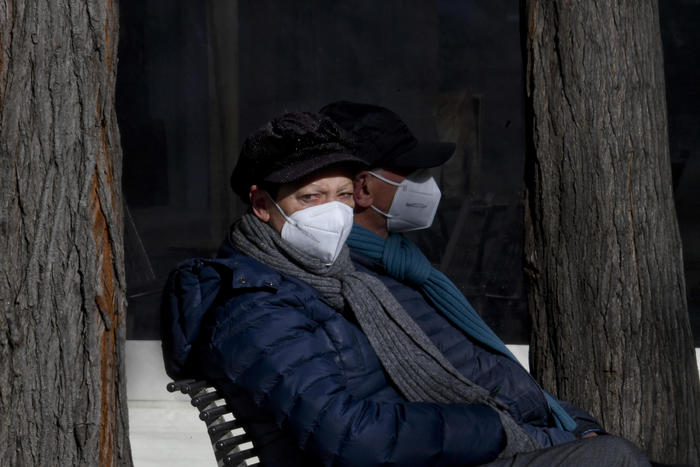Without the mask, the droplets of saliva emitted when speaking from a person who has SarsCoV2 infection can reach a distance of just over one meter, while sneezing can reach up to 7 meters in conditions of high humidity.
The surgical mask, on the other hand, gives measurable protection and an even greater one is obtained using the Ffp2.
However, it is impossible to establish a universal safety distance.
This is indicated by the results obtained by the research group of Francesco Picano, of the Department of Industrial Engineering of the University of Padua, published in the Journal of the Royal Society Interface.
The research group, of which Federico Dalla Barba and Jietuo Wang are part, worked in collaboration with Alfredo Soldati, and Alessio Roccon, of the Polytechnic University of Vienna and of the University of Udine, and Gaetano Sardina of the Swedish Chalmers University of Technology. The researchers propose a model for quantifying the risk of contagion from Covid-19 as a function of interpersonal distance, environmental conditions of temperature and humidity and the type of respiratory event considered (speaking, coughing or sneezing) with or without the use of masks.
The estimates that emerge from the model, the authors of the research point out, are in agreement with the most recent experimental evidence. From the application of the model for estimating the risk of contagion, it is clear that there is no "universal" safety distance as it depends on the environmental conditions, the viral load and the type of respiratory event. For example, considering a cough (with average viral load) there is a high risk of contagion within 2 meters in conditions of average relative humidity while they become 3 with high relative humidity, always without a mask.
The research, using the most recent experimental data on the reduction of droplet emission by masks, tested the model to quantify how personal protective equipment reduces the risk of contagion: the use of the mask, surgical and even more. if FFP2, it proves to be an excellent protection tool by reducing the risk of contagion which becomes negligible even at short distances (about 1m), regardless of the environmental conditions or the respiratory event considered.

